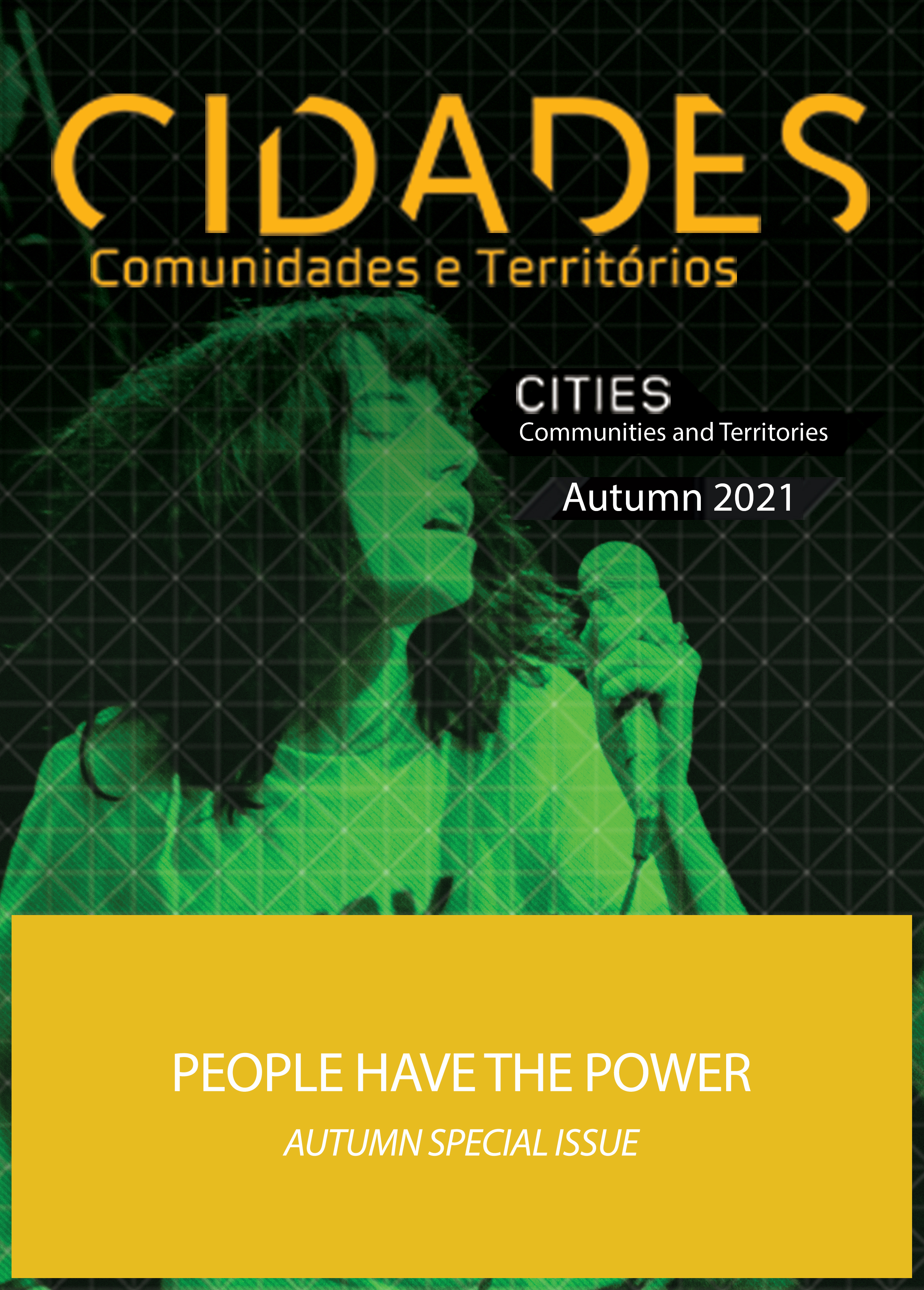‘People Have the Power’: Songs of Resistance in Late Modernity
Keywords:
N.A.Abstract
N.A.
References
Bayat, A. (2013). Life as politics: How ordinary people change the Middle East. Stanford: Stanford University Press.
Feixa, C. (2017). The ‘Indignant’ Pilgrim: Cultural Narratives of Crisis and Renewal in the 15M Movement in Spain, Romance Quarterly, 64(3), 113–125.
Feixa, C., &Guerra, P. (2017). ‘Unidos por el mismo sueño en una canción’: On music, gangs and flows, Portuguese Journal of Social Science, 16(3), 305–22.
Guerra, P. (2019a). The song is still a ‘weapon’: The Portuguese identity in times of crisis, YOUNG – Nordic Journal of Youth Research, 28(1), 1–18. https://doi.org/10.1177/1103308819829603.
Guerra, P. (2019b). Nothing is forever: um ensaio sobre as artes urbanas de Miguel Januário±MaisMenos±, Horizontes Antropológicos, 55, 19–49.
Guerra, P., Feixa, C., Blackman, S., & Ostegaard, J. (2019). Introduction: songs that sing the crisis: music, words, youth narratives and identities in late modernity. YOUNG – Nordic Journal of Youth Research, 28 (1). https://doi.org/10.1177/1103308819829603.
Lambert, L. (1863). When Johnny comes marching home. United States of America.
LeVie, M. (2015). When Art is the weapon: Culture and resistance confronting violence in the post-uprisings Arab world. Religions, 6, 1277–1313.
Sánchez García, J. (2018). Cairo Nights: Mulids and the politics of Mahraganat music. In: J. Nofre & A. Eldrige (Eds.). Exploring nightlife space, society and governance (pp. 99–113). London: Rowman and Littlefield.
Schreiber, B. (2019). Music is power: Popular songs, social justice, and the will to change. New Brunswick, New Jersey: Rutgers University Press.
Smith, P. (1988). People Have the Power. Dream of Life. New York: Arista.
Downloads
Published
Issue
Section
License
Copyright (c) 2021 Paula Guerra, Elizabeth Turner, Carles Feixa

This work is licensed under a Creative Commons Attribution-NonCommercial-NoDerivatives 4.0 International License.
CIDADES, Comunidades e Territórios by DINÂMIA'CET-Iscte is licensed under a CC-BY licence.






